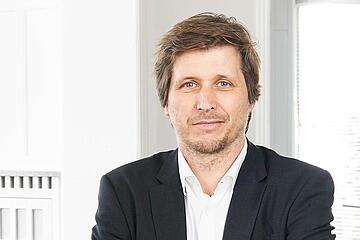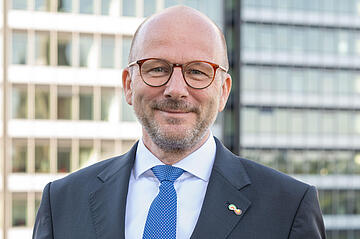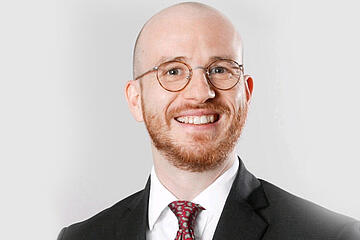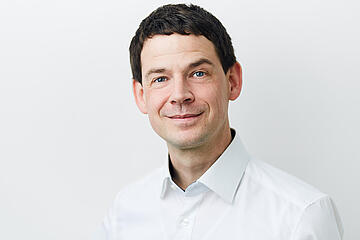Global China Conversations #25
Diversification: Can India be an Alternative to China?
Topic
An ageing population, structurally weaker growth in China and the general de-risking tone are turning all eyes to India: while China's working-age population is shrinking, India's will grow. Investors see the country's relative economic autonomy as an opportunity to better hedge against the effects of an impending global recession in the internationally networked economy. For German companies, the country can offer a market where China is increasingly producing domestically. The Indian government's self-declared goal is to reach the stage of a developed country by 2047. Reforms such as a uniform value-added tax and a unified domestic market are steps in the right direction. Nevertheless, structural problems such as poverty, weak infrastructure, low industrialisation, protectionist measures, and corruption remain. The country under Narendra Modi also sees a shift towards Hindu nationalism, leading to ethnic unrest in parts of the country. As "Asia's largest democracy", India is being courted as a partner of the West, while it at the same time sides with China and Russia in the BRICS. Does this very attempt to stand between the blocs offer attractive diversification potential? Or will internal and external problems continue to keep India the "eternal future market"?
In GCC#25 we discuss India's economic future and its potential as a diversification destination for German companies.
Program
The event consists of different impulse lectures followed by a discussion.
The Global China Conversation #25 will be held in German.
Speaker

Moritz Schularick
Moritz Schularick is president of the Kiel Institute for the World Economy since June 2023 and Professor of Economics at Kiel University. His research includes financial markets and asset prices, issues in monetary macroeconomics, and the causes of financial crises and economic inequality. Prior to his appointment in Kiel, Moritz Schularick was Professor of Macroeconomics at the University of Bonn, Director of the MacroFinance Lab there, and Professor at Sciences Po (Paris). He is also a member of the ECONtribute cluster of excellence and a full member of the Berlin-Brandenburg Academy of Sciences and Academia Europea. Previously, he conducted research at New York University, the University of Cambridge, Freie Universität Berlin, and in the research department of the Federal Reserve Bank of New York, among others. He is a recipient of the 2022 Leibniz Prize, Germany's most prestigious research prize, awarded by the German Research Foundation (DFG). In 2018, he received the Gossen Prize of the Verein für Socialpolitik, the most prestigious award given to German economists. He is editor of the most important European journal for economic policy, "Economic Policy." He regularly advises central banks, ministries of finance, investors, and international organizations.

Stefan Halusa
Stefan Halusa joined the Indo-German Chamber of Commerce in September 2020 and has been the Director General since April 1, 2021. He is based out of Mumbai. Prior to joining IGCC he had worked almost 30 years in the industry, first with Winterling Porzellan AG and then moving to the Brose Group in 1997. During his time at Brose, he held various senior management positions in the headquarters (VP Strategy and EVP Sales) as well as in Asia, where he served as President Asia, President Korea and President East Asia. Stefan Halusa holds a business degree (Diplom-Kaufmann) from the Ludwig-Maximilians-University in Munich. He is 58 years old, and married to Barbara, who is a pharmacist. They have a 26-year-old son.

Florian Wenke
Florian Wenke joined Germany Trade and Invest (GTAI) in March 2020 and is currently working as the Director for India, Sri Lanka and the Maldives. GTAI is the economic development agency of the Federal Republic of Germany. He is based in Mumbai since March 2021. Prior to his current job, he worked in several positions and organisations with regard to foreign trade promotion, always keeping an eye on India. He has been focusing on this country since 2012 and lived there for about 7 years since then. Florian Wenke holds a Master's degree in Economics. He studied the subject at the University of Heidelberg, the University of Göttingen, Pune University (India) as well as the University of Innsbruck. His economic interests are development economics, institutional economics, as well as the history of economic ideas.
Moderation

Finn Mayer-Kuckuk
Finn Mayer-Kuckuk is a business journalist specializing in East Asia. He heads the editorial team of China.Table, the daily professional briefing for experts in business, science, politics, and organizations. Among other things, he has worked as a Beijing correspondent for the Handelsblatt and the DuMont Group and later represented several media as a business correspondent at the Federal Press Conference in Berlin.
